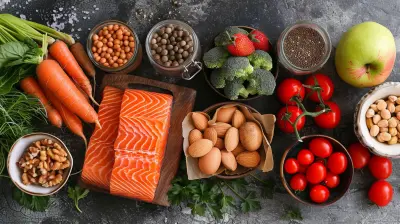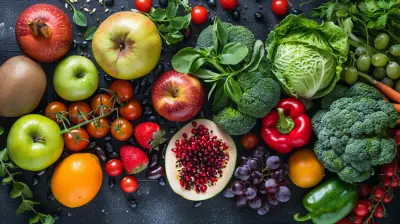The Benefits of Incorporating Whole Grains into Your Diet
6 September 2025
Let’s get this out of the way: whole grains are like the reliable, low-key hero in your pantry. They're not flashy like a cupcake or dramatic like keto trends, but boy, do they pull their weight (and then some). If you’ve been giving them the cold shoulder in favor of white bread and rice that's been stripped of all its personality (and nutrients), it might be time to rethink your life choices. Dramatic? A little. But your digestive system and waistline will thank me later.
So grab your bowl of oatmeal, buckle up, and prepare to get grainy—because we're about to dive into all the hilarious, surprising, and oh-so-nutritious benefits of going whole grain.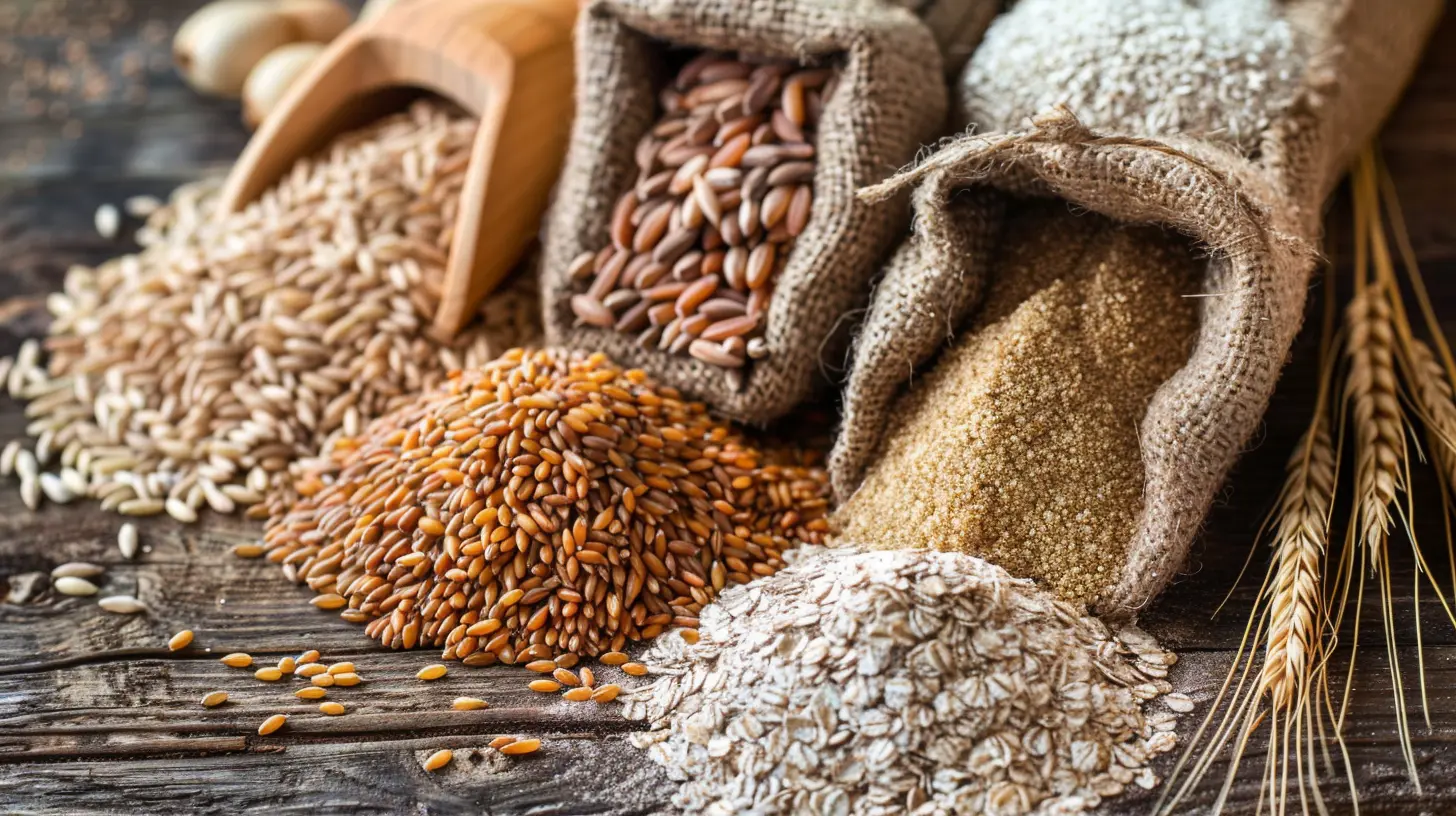
What Are Whole Grains, Really?
Let’s clear the air. Whole grains aren't mystical, crunchy-nature-store-only ingredients that belong exclusively to health nuts and yoga instructors. They're simply grains that haven’t been robbed of their good bits.Each grain has three parts: the bran (the outer skin, full of fiber), the germ (the baby plant with all the nutrients), and the endosperm (the carb-filled middle child). Whole grains keep all three parts. Refined grains? They kick out the bran and germ like an ungrateful teenager who just wants that easy-to-digest white fluff.
Examples of Whole Grains
- Oats (your breakfast BFF)- Brown rice
- Quinoa (fun to say, even better to eat)
- Barley
- Millet (not just for birds!)
- Whole wheat
- Spelt (sounds fancy, tastes hearty)
- Bulgur (you’ve probably eaten it in tabbouleh and didn’t even know)
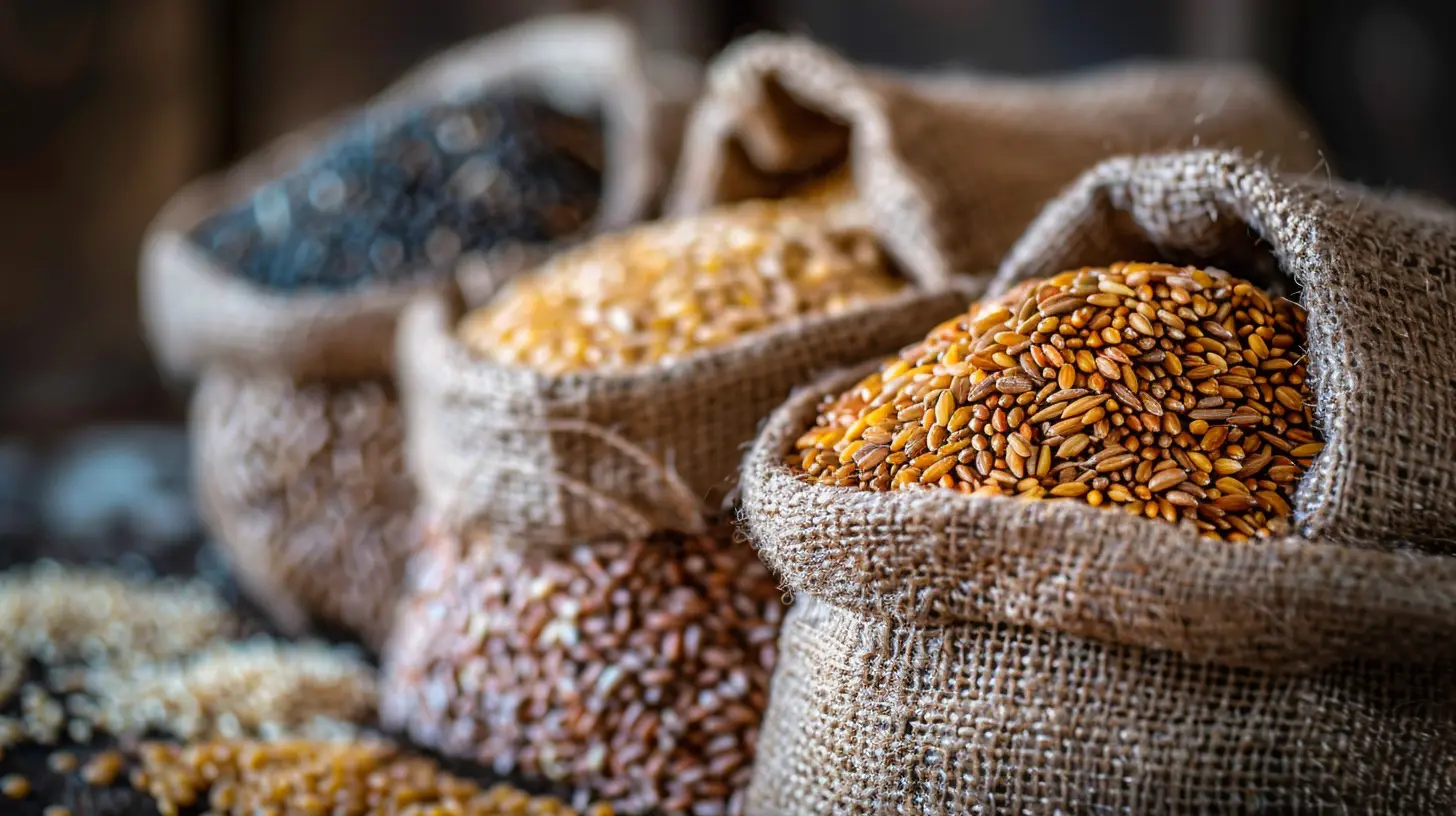
Whole Grains: The Unsung Superheroes Of Health
Let’s break it down with a metaphor: If your body were a car, whole grains would be the premium fuel. They keep your engine running smoothly, your tires (ahem, arteries) clean, and your mileage (energy levels) optimal.1. Fiber: Whole Grains' Secret Weapon
Fiber deserves a standing ovation. It keeps things moving—literally. Not only does fiber help keep your digestion on track (goodbye constipation!), but it also:- Keeps you fuller for longer (step aside, bottomless snack cravings)
- Helps regulate blood sugar
- Reduces cholesterol
- Makes your gut bacteria do a happy dance
Seriously, who knew plant matter could be so powerful?
2. Weight Management: The Full-Belly Effect
Ever eaten a donut and felt hungry again in, like, 20 minutes? Whole grains are the total opposite. Their fiber and complex carbs take longer to digest, making you feel full longer. You might actually forget to snack! (I said might. Let's not get crazy.)Incorporating whole grains can help curb mindless munching, which can lead to maintaining or even losing weight without feeling like a sad lettuce-munching rabbit.
3. Say Goodbye to Blood Sugar Rollercoasters
Refined carbs are notorious for spiking your blood sugar and then crashing it back down faster than an over-caffeinated squirrel. Whole grains? They're like the chilled-out friend who keeps everything balanced and calm.They have a lower glycemic index, which basically means your blood sugar doesn’t act like it’s on a trampoline after every meal. For anyone managing diabetes—or simply trying to avoid mid-afternoon crashes—this is a big deal.
4. Heart Health: Whole Grains Love You Back
Your heart isn’t just for heartbreak songs. It's a hard-working muscle that appreciates the TLC from whole grains. Studies have shown people who eat more whole grains have a lower risk of heart disease. That’s thanks mainly to their fiber content, which helps lower "bad" LDL cholesterol and keeps arteries squeaky clean.So yes, that bowl of hearty oatmeal might actually be serenading your heart with a love ballad.
5. Gut Health: Whole Grains Are Basically Fertilizer for Your Microbiome
You’ve got trillions of bacteria in your gut. Wild, right? The good ones are kind of like helpful roommates. They assist with digestion, immunity, and even mood regulation.Whole grains feed those good bacteria like a buffet at a Vegas hotel. The result? A happy gut that can better absorb nutrients, fight off invaders, and turn you into a walking, talking health machine.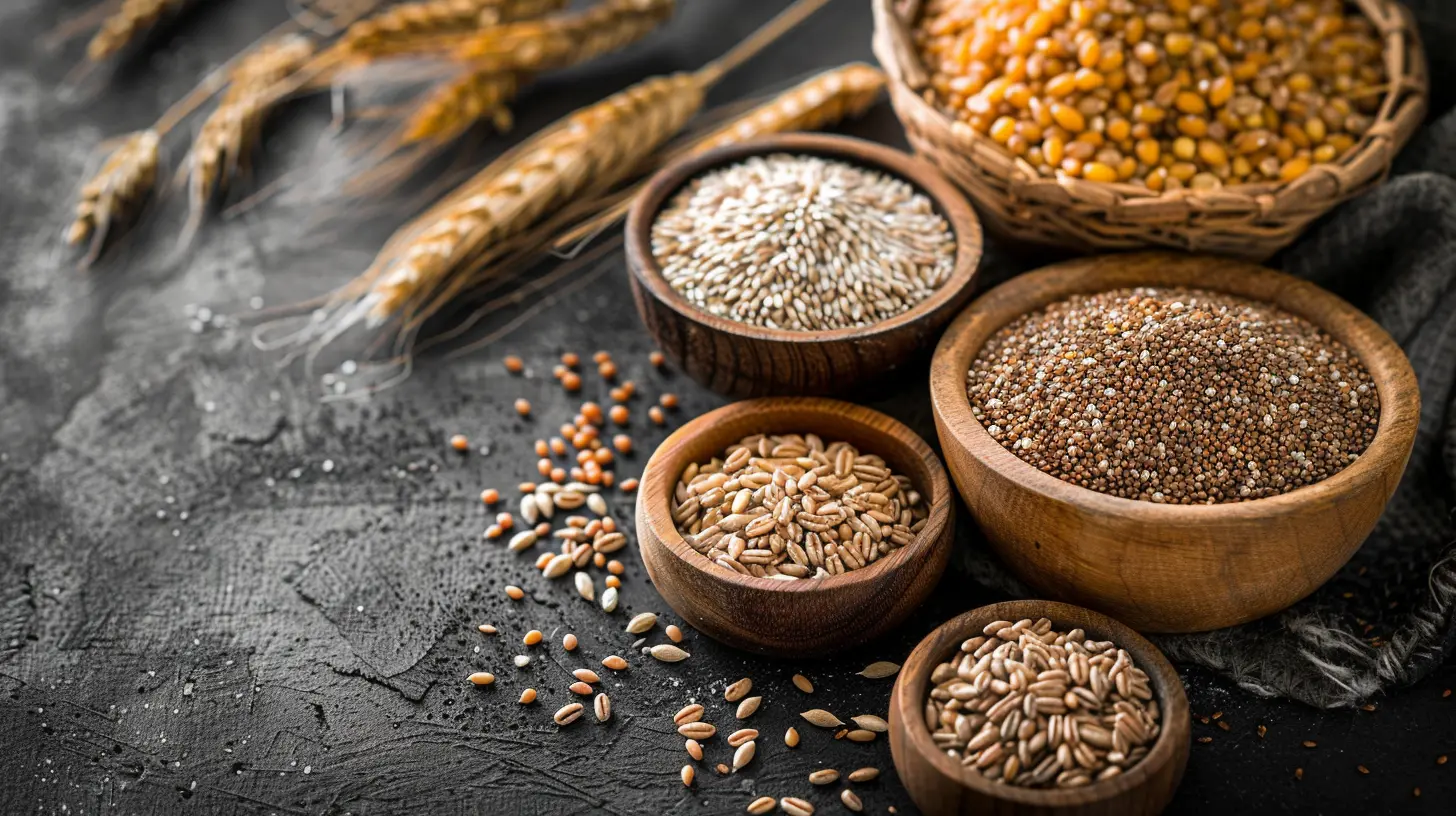
Whole Grains vs. Refined Grains: The Showdown
Let’s get dramatic for a second. Picture this like a wrestling match:In the Red Corner: Refined grains—light, fluffy, and suspiciously shelf-stable.
In the Blue Corner: Whole grains—nutty, fibrous, and packed with nutrients.
🥁 DING DING DING!
Refined grains enter strong with taste and speed—they break down quickly and give you a jolt of energy. But they crash just as fast, leaving you sluggish and hungry. Nutrients? Mostly stripped away during processing. Talk about a one-hit wonder.
Whole grains bring sustained energy, complex nutrients, and fiber. They may not be flashy, but they’re the kind of long-term relationship everyone wants: reliable, strong, and good for you.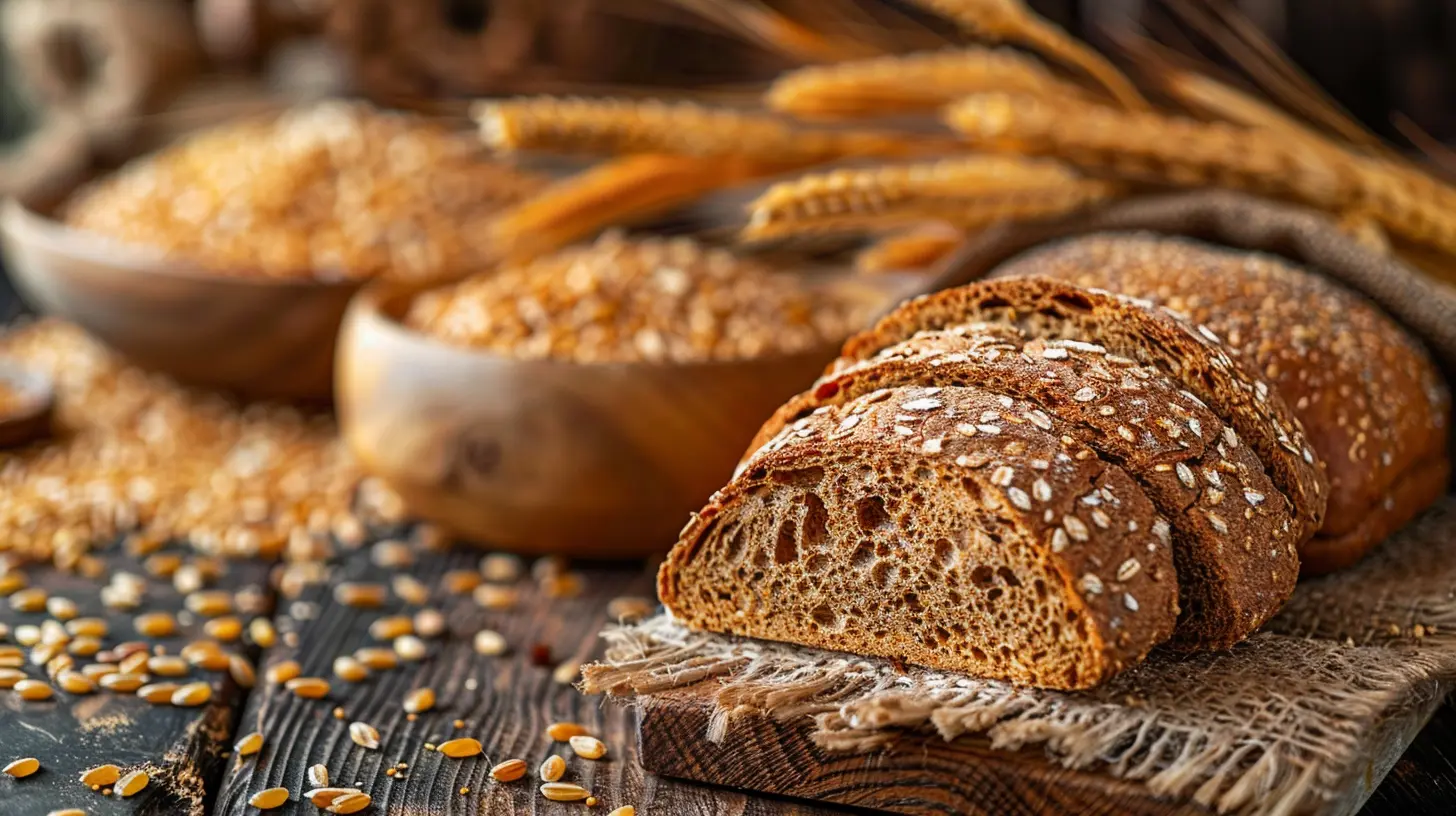
How to Start Adding Whole Grains to Your Life (Without Becoming a Health Hermit)
Okay, so you're convinced. You want those whole grain gains. But where to start?1. Make Simple Swaps
- White rice → Brown rice or quinoa- White pasta → Whole wheat pasta
- White bread → 100% whole wheat bread (check the label!)
- Corn flakes → Bran flakes or oatmeal
No need to throw a dramatic pantry purge party. Just start small and swap one refined carb a day.
2. Bake Like a (Healthy) Boss
Throw some whole wheat flour into your cookies or pancakes. Mixing half whole wheat with all-purpose flour is a sneaky way to grain-ify your baked goods without scaring off the kids (or your inner picky eater).3. Breakfast: The Gateway Meal for Whole Grains
Oatmeal is basically a gateway drug for whole grain lovers. It’s warm, filling, and highly customizable. Add some fruit, nuts, cinnamon—you’ve got yourself a breakfast that’s practically high-fiving your insides.4. Try Exotic (But Totally Easy) Grains
Ever heard of farro? How about teff? Sounds fancy, but they cook just like rice and taste amazing. Toss them into soups, salads, or stir-fries and pretend you're a gourmet chef. (No hat required, but encouraged.)5. Get Label-Literate
"Multigrain" doesn’t automatically mean healthy. Neither does "wheat bread." Look for phrases like “100% whole grain” or check the ingredients list—whole grains should be the first one listed. If sugar comes before oats, we’ve got a problem.Common Grain-Related Questions (Yes, People Really Ask These)
Q: Are All Whole Grains Gluten-Free?
A: Nope! Wheat, barley, and rye have gluten. But if you’re gluten-sensitive, you’ve got options like brown rice, quinoa, millet, and oats (just make sure they’re certified gluten-free because oats love to mingle).Q: What’s the Deal with Phytic Acid?
A: Ah, the anti-nutrient panic. Phytic acid in whole grains can slightly reduce nutrient absorption, but unless you’re living on a diet made entirely of bran flakes, you're fine. Plus, the benefits far outweigh this tiny hiccup.Q: Will Whole Grains Make Me Bloated?
A: At first? Maybe. Fiber's like a workout for your gut, and it might complain when you jump in too fast. Increase fiber gradually and drink plenty of water. Your digestive system will adapt and love you for it.Whole Grains in Pop Culture (Kind Of)
Look, whole grains aren't exactly starring in Hollywood movies (yet), but they’ve got street cred. Health orgs, nutritionists, and even forward-thinking food companies are shouting their praises from the rooftops.Ever notice those “Whole Grain Stamp” logos on cereal boxes? That’s the health world’s equivalent of a Grammy award. If your cereal rocks one of those, you’re basically eating Beyoncé-level grains.
Final Thoughts: Go With the Grain!
Whole grains might not be trendy like avocado toast or dazzling like unicorn lattes, but they’re the unsung MVPs of your diet. They show up on time, do their job, and leave your body better than they found it.Incorporating them doesn’t mean giving up the foods you love—it just means giving your meals a little upgrade. Like switching from dial-up to high-speed Wi-Fi. Once you go whole grain, you won’t want to go back.
So what are you waiting for? Toss some quinoa in your salad, grab whole wheat sandwich bread, and maybe—just maybe—start referring to yourself as “grain-positive.” Your body (and your taste buds) will thank you.
all images in this post were generated using AI tools
Category:
NutritionAuthor:

Eileen Wood
Discussion
rate this article
1 comments
Landon McCoy
Whole grains are a game changer! They add flavor, keep you full, and boost your energy. Plus, who doesn’t love a hearty bowl of oatmeal?
September 28, 2025 at 3:34 AM

Eileen Wood
Absolutely! Whole grains are nutritious powerhouses, enhancing both flavor and satisfaction while providing lasting energy. Oatmeal is a fantastic choice!
